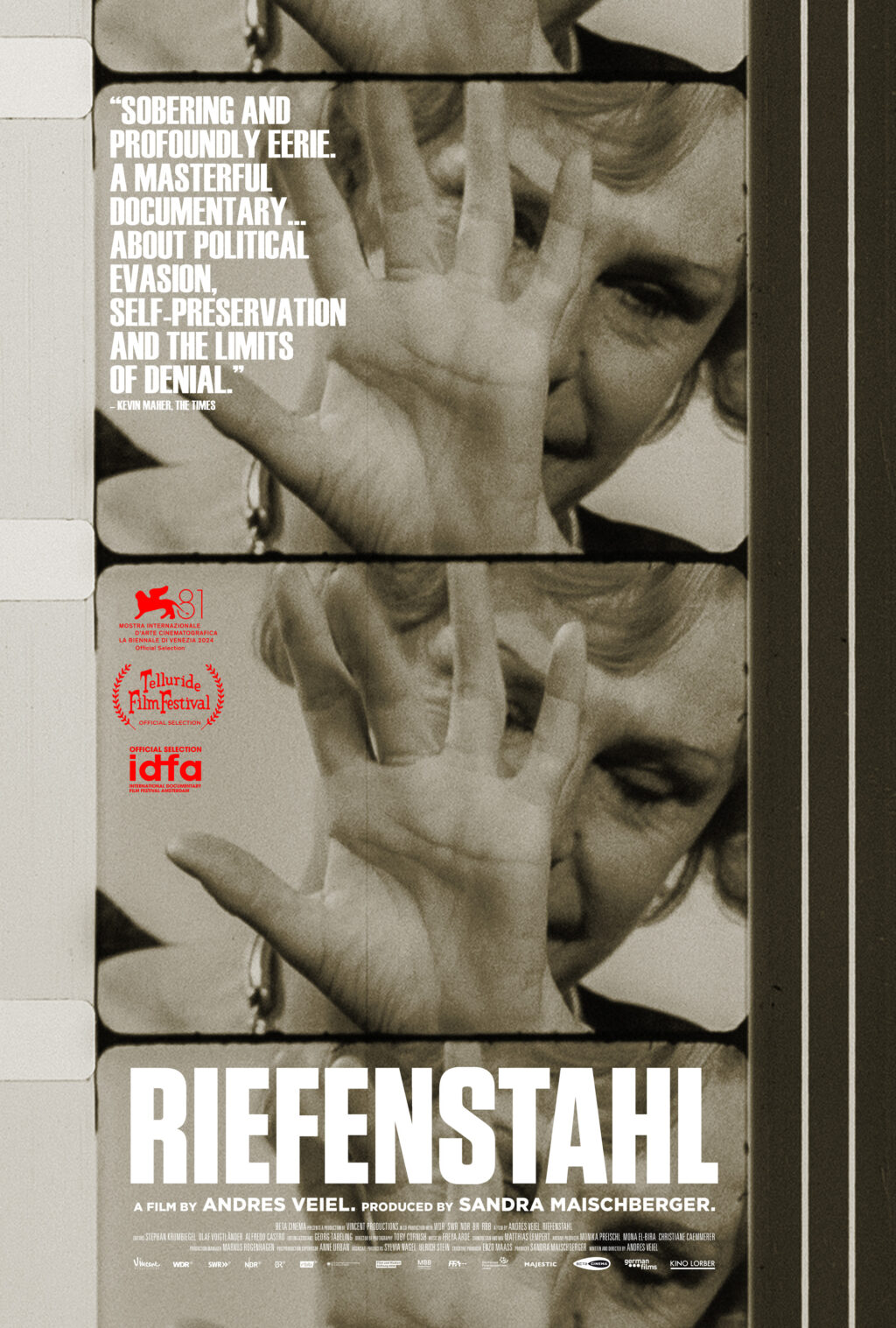Riefenstahl
7:00pm
doors at 6:30pm
$7 for SPACE Members
_
IRL Box Office | Cash only. No fees.
Fridays 12-6 pm at 534 Congress St.
dir. Andres Veiel | 115 min.
In English and German with English subtitles
Filmmaker and Nazi propagandist Leni Riefenstahl is considered one of the most controversial women of the 20th century. Her films Triumph of the Will and Olympia are defined by their fascist aesthetics, perfectly-staged body worship, and the celebration of all that is “superior” and victorious, simultaneously projecting contempt for the imperfect and weak. But Riefenstahl — who first broke into the German film industry as an actress — spent decades after the war denying her association with Nazi ideology, and claiming ignorance of the Holocaust. How did she become the Reich’s preeminent filmmaker if she was just a hired hand? Riefenstahl examines this question using never-before-seen documents from Leni Riefenstahl’s estate, including private films, photos, recordings and letters, uncovering fragments of her biography and placing them in an extended historical context. During her long life after the fall of Nazism, she remained unapologetic, managing to control and shape her legacy; in personal documents, she mourns her “murdered ideals.” Meanwhile, her work would experience a renaissance, gaining esteem for its masterful technical skill. Today, Riefenstahl’s aesthetics are more present than ever. Is that also true for their message? In an era where fascism is on the rise again, fake news is prevalent, and the meaning of political imagery is constantly dissected and debated, Andres Veiel’s mesmerizing new film shows that Leni Riefenstahl is more relevant than ever.
“Coolly damning… shrewdly edited. A welcome addition to the historically grounded rebukes to Riefenstahl and her apologists.”
– Manohla Dargis, The New York Times

